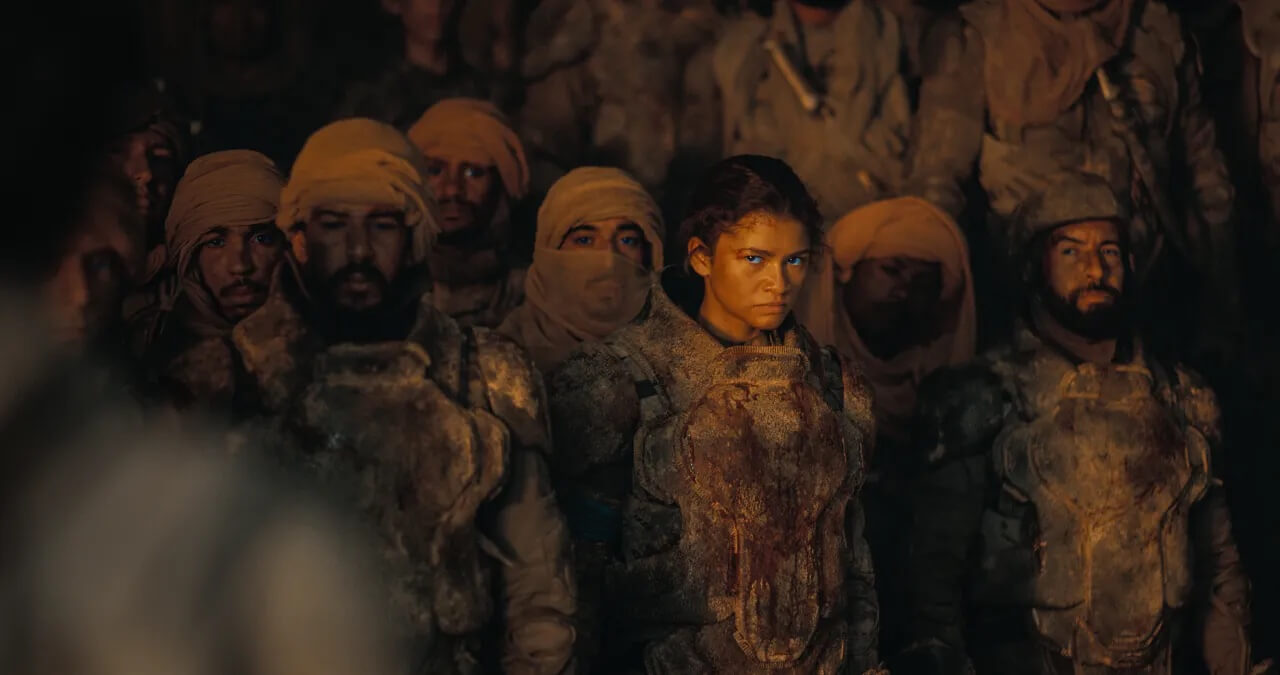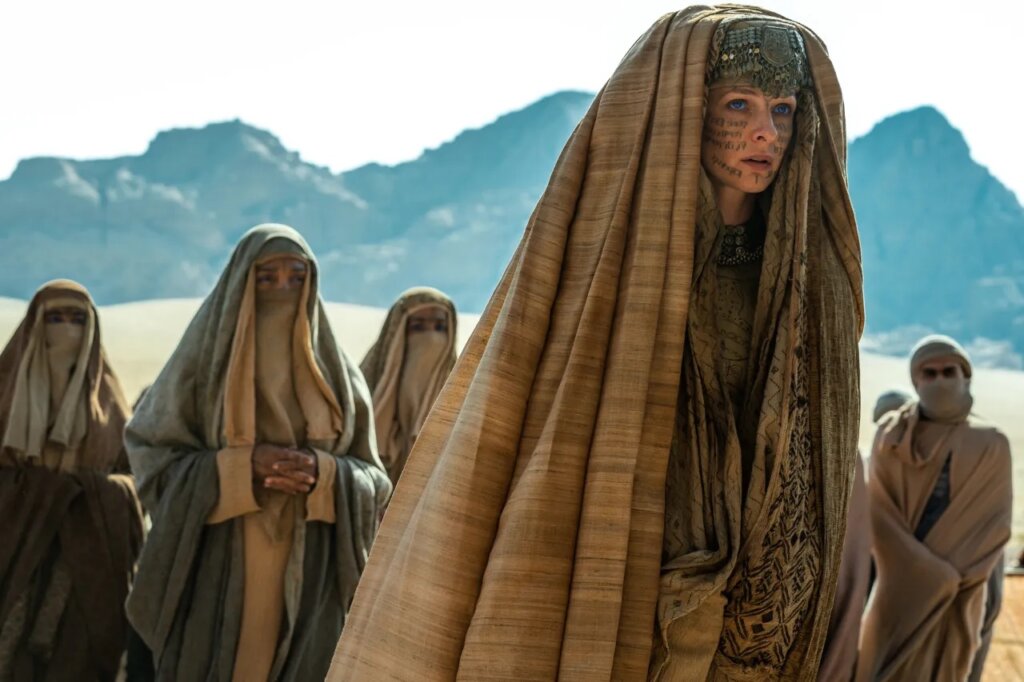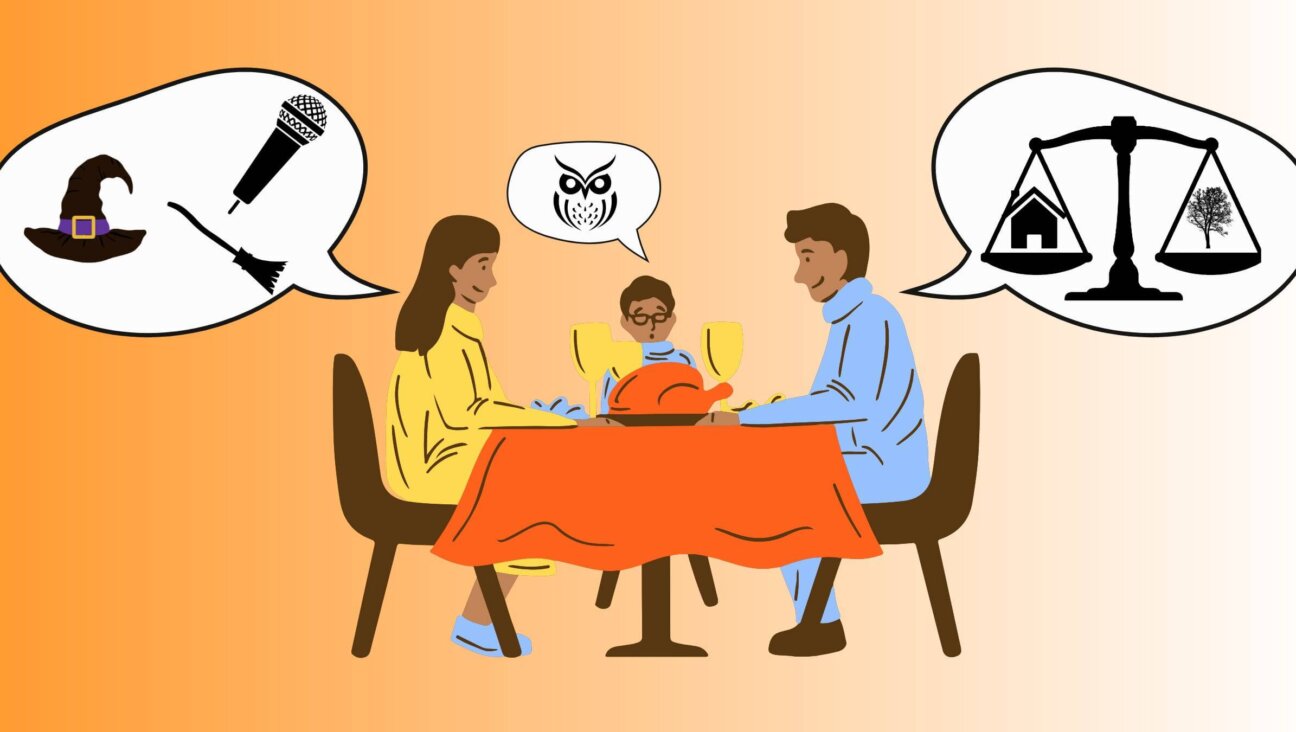‘Dune 2’ is set thousands of years in the future — so why does it feel like a parable about Gaza?
The blockbuster’s visuals feel ripped from the news about the Israel-Hamas war

The Fremen with Zendaya looking very…familiar. Courtesy of Warner Media
The Dune movies take place thousands of years in the future in a made-up feudal society on a fictional desert planet in the era of space travel. But watching the blockbuster movie feels a lot like watching the news, at least since Oct. 7.
Frank Herbert’s 1965 sci-fi novel is an analogy about Western colonization of the Middle East in pursuit of oil. And that’s definitely still there; in the movie, major powers battle over a nomadic desert planet, Arrakis, because it is the only place where spice, a product essential to space travel, can be mined. (Spice is also hallucinogenic, which has less to do with oil than with the fact that it was the 60s and Herbert ate a lot of mushrooms.) But Dune 2 is less focused on oil than on war, that of a brutal colonizing force wiping out a desert-dwelling native society.

Arrakis, where Dune takes place, is inhabited by a nomadic race called the Fremen. It’s clear that they are meant to be Arab; that was true in the books, too. But the movie’s visuals drive the point home. The Fremen men wrap keffiyeh-like scarves over their heads and the women — at least those who don’t fight in the Fremen guerilla force — cover their hair with something like a hijab or chador.
Speaking of that guerilla force, it’s pretty hard not to think of Hamas when you see the Fremen, their faces concealed by tightly wrapped scarves, emerge from under the sand to blow up giant warships and machinery before vanishing into the desert again. It calls to mind videos of Hamas fighters popping out of their tunnel network to blow up an Israeli tank before ducking back below ground. (The Fremen also live largely below ground, since it’s colder there.)
The Hamas resemblance feels especially pointed when the Fremen’s new leader, Paul Atreides (Timothée Chalamet) says their weapons pale in comparison to their enemies’, but their most powerful resource is “fear.”
Meanwhile, the Harkonnens, the colonizing force who control the mining of spice, want to wipe out the Fremen so they can control Arrakis without dealing with the local populace. And when they talk about their war efforts, they say things that sound an awful lot like quotes from some of the far-right members of Netanyahu’s current government. When the Harkonnens call the Fremen “rats” and roar “exterminate them all!” they seem to be echoing Yoav Gallant, Israel’s defense minister, who has said that Israel is fighting “human animals,” as well as numerous Israeli talking heads and leaders who have called for the destruction of the entire Gaza Strip.
At one point, the Harkonnens, frustrated that their war efforts have not yet led to the eradication of the Fremen, begin to bombard one of their northern cities, using their enormous firepower to turn the entire place into rubble — supported and encouraged by the universe’s great power, the Emperor.
The attack displaces nearly the entire Fremen population in the north, forcing them to flee to the planet’s south. In the movie, we watch a winding line of women and children with bloodied faces, their belongings in sacks on their back, march south — a scene we’ve seen repeatedly in the wake of Israeli strikes, as Israel ordered Gazans to evacuate cities and move south.
These similarities are uncomfortable, not least because, in the movie, the Fremen, led by superstar actors Timothée Chalamet and Zendaya, are the obvious heroes. In real life, the moral framework is far more fraught; most people, even if they vehemently criticize Israel, would feel uncomfortable whole-heartedly endorsing Hamas.
The parallel between Dune and the Israel-Hamas war is not, of course, perfect; after all, the book was written decades ago, inspired more by Lawrence of Arabia than anything in Israel. Unlike the Harkonnens, Israelis have deep historical and religious ties to the land. Unlike Hamas, the Fremen don’t bomb civilians, keeping to targeted strikes against mining machinery.
Nevertheless we’re watching Dune 2 during the Israel-Hamas war; it’s the one we’re seeing unfold on our phones before and after entering the theater in videos and news clips that look uncannily like scenes from the movie. It’s impossible not to see one in the other. But in Dune 2, everyone can agree on its explicit moral; in real life, it’s as muddled as always.






















